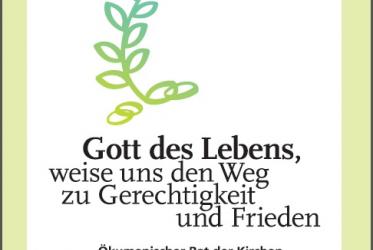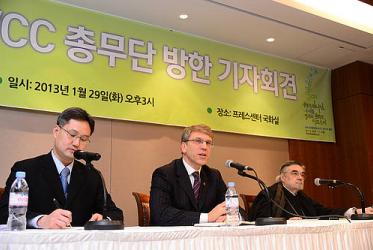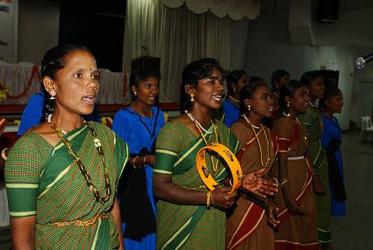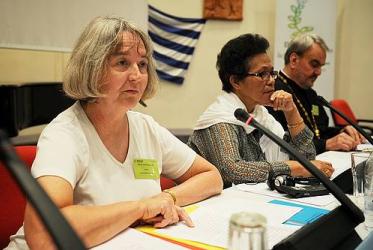Displaying 421 - 440 of 444
Churches commemorate Week of Prayer for Christian Unity
24 January 2014
Ecumenical Review seeks “a common vision of the church”
02 December 2013
WCC assembly ready to open, watch from afar
25 October 2013
WCC expresses condolences at death of Brother Jeffrey Gros
13 August 2013
WCC assembly, an opportunity for praying, listening and sharing
29 January 2013
Churches celebrate Week of Prayer for Christian Unity
23 January 2013
Week of prayer 2013 explores what “God requires of us”
21 August 2012
Called to Be the One Church: Faith and Order at Crete
Report of the 2009 Meeting of the Plenary Commission — Faith and Order paper No.212
15 February 2012













